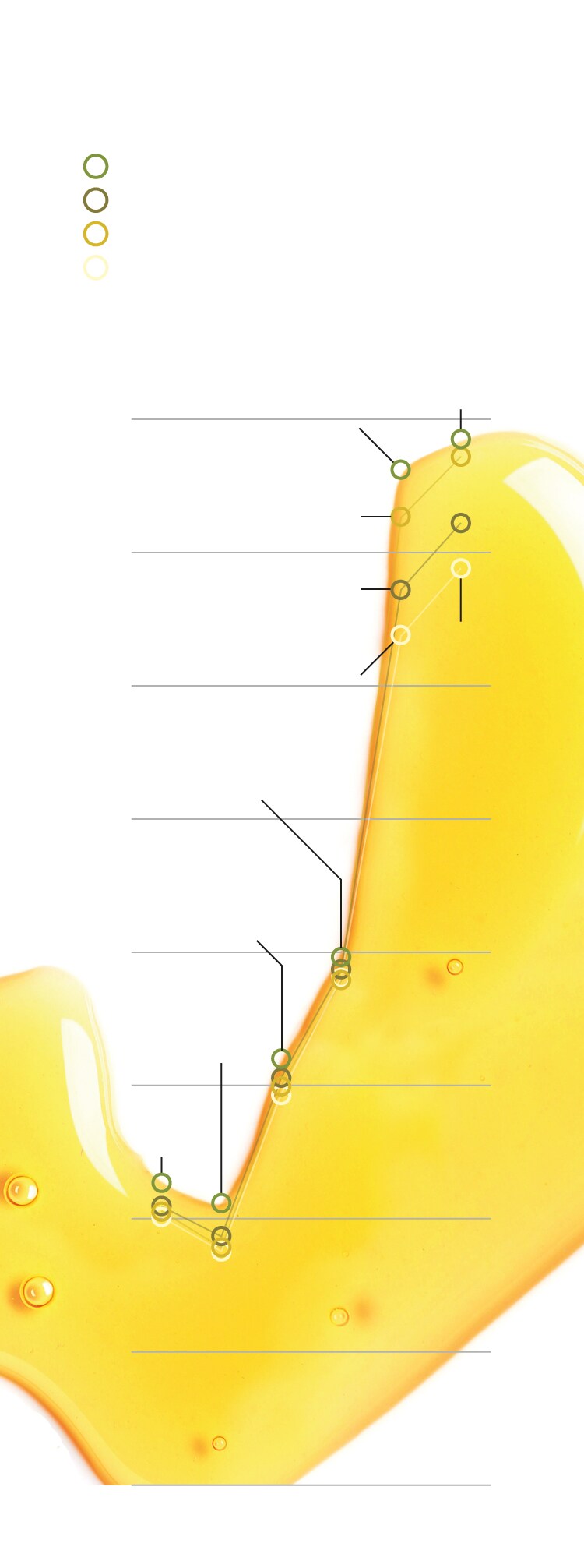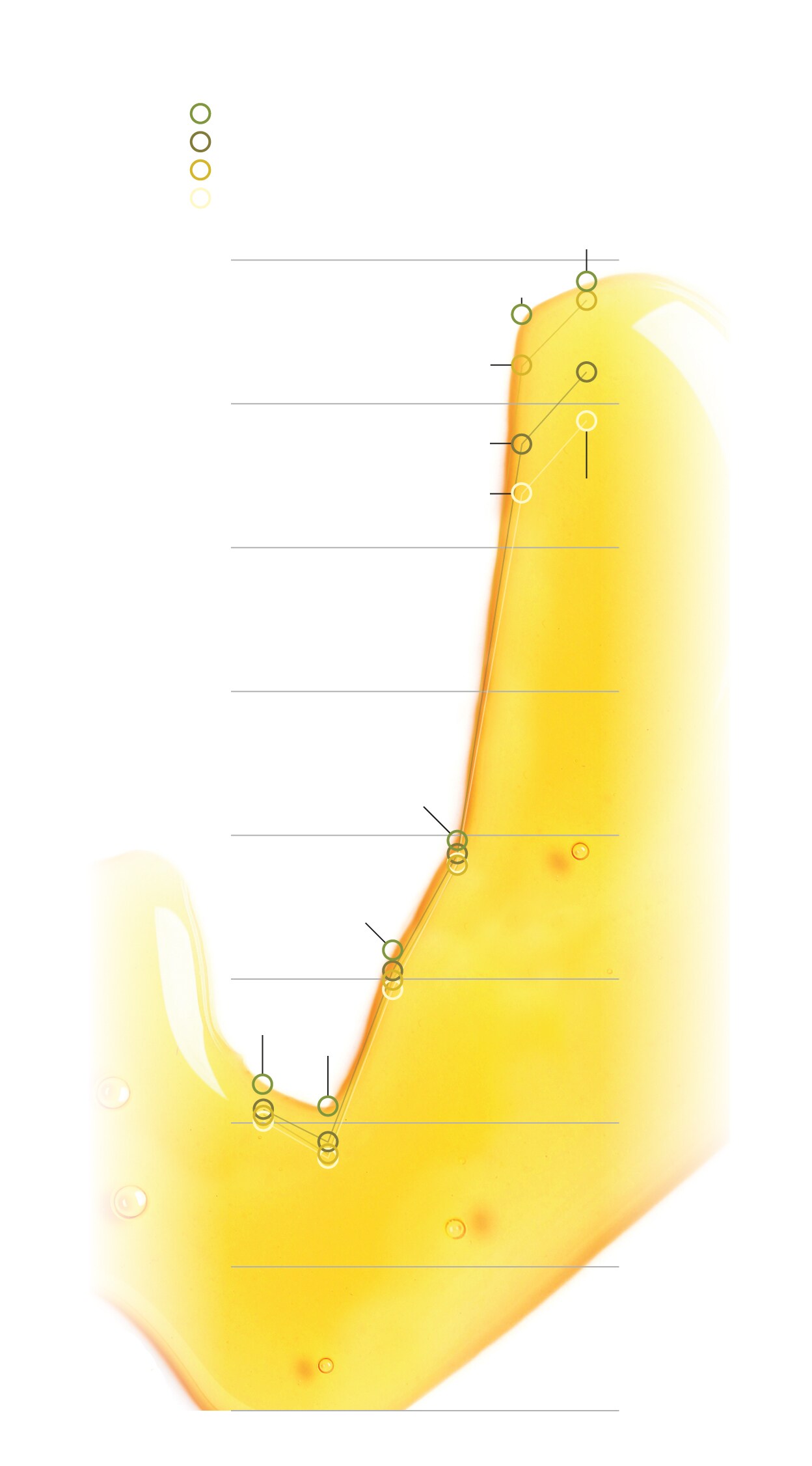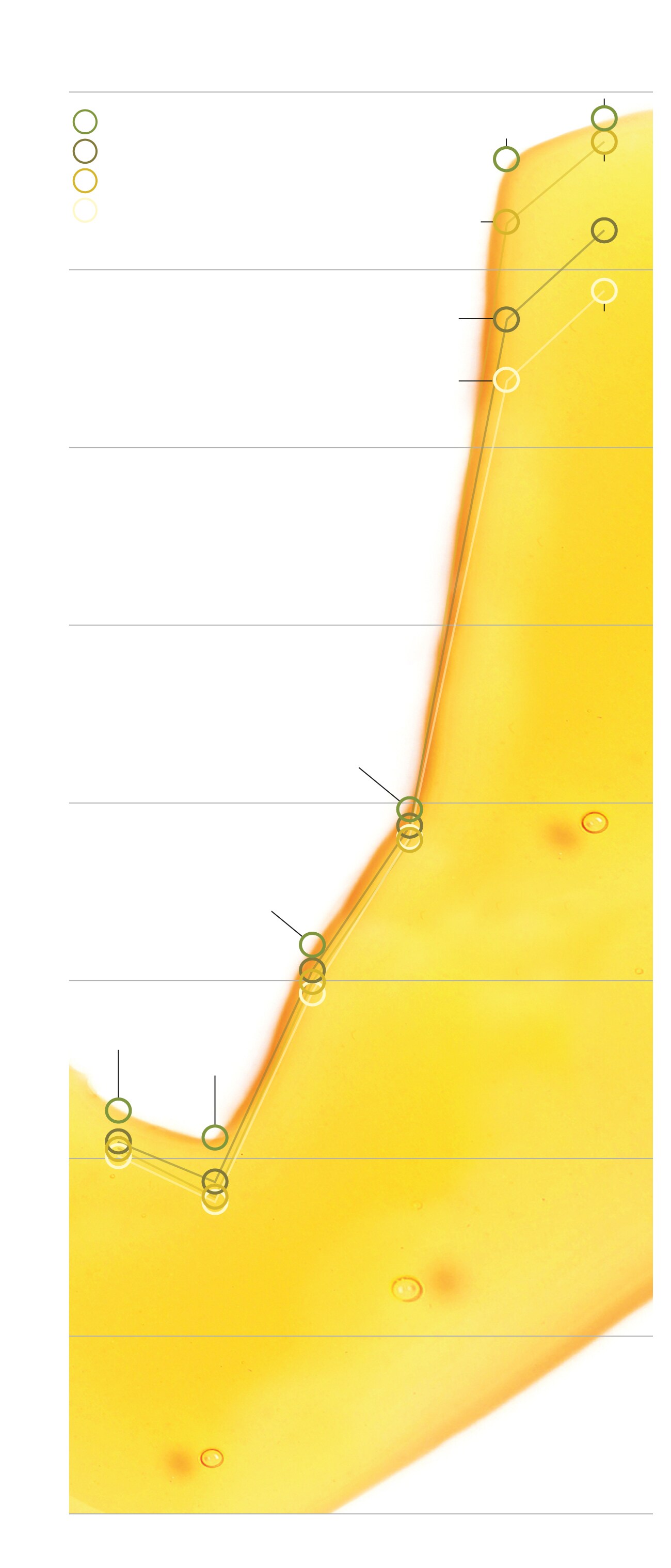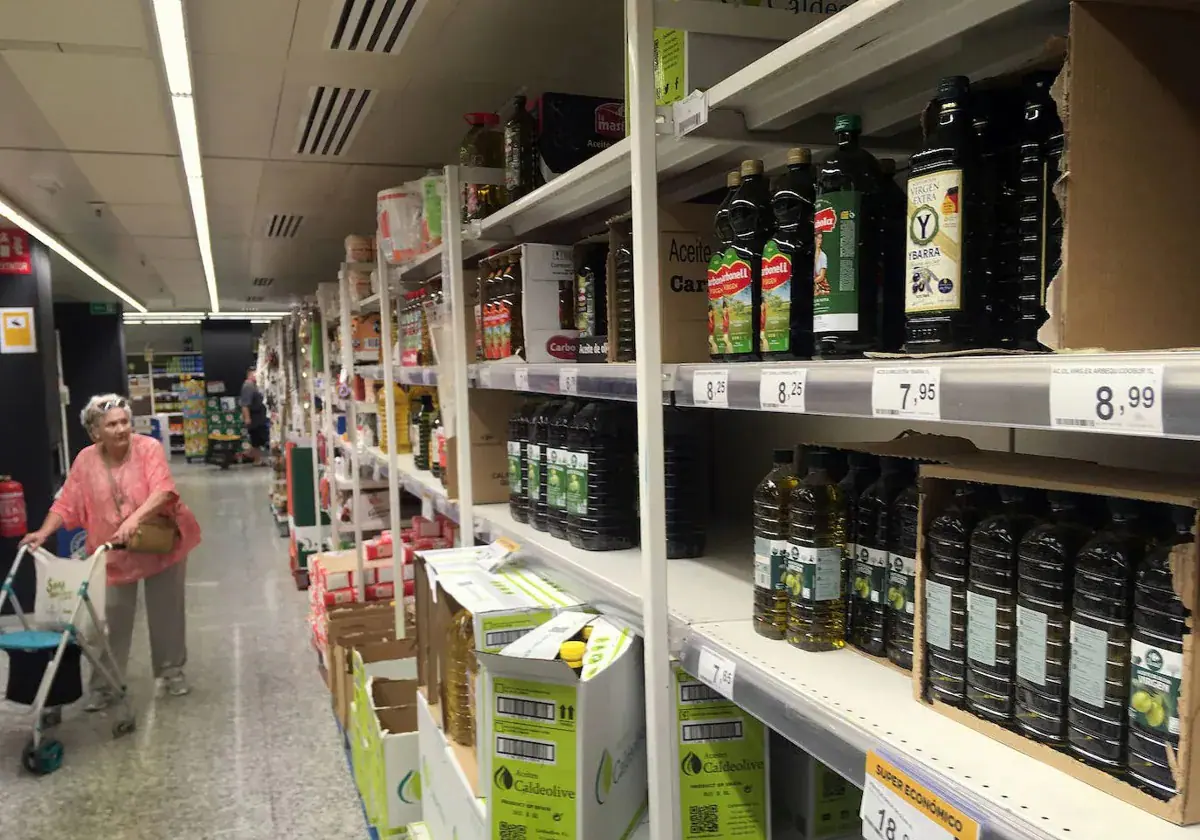Olive oil shortage in warehouses delays expected price fall in Malaga province
Demand remains the same despite the fact that the price per litre is still around ten euros in supermarkets, exacerbating the lack of stock
The heavy rains in March have brought some relief to farmers. After several difficult years, for the first time the agricultural sector is in a position to predict a significant harvest for the 2024/2025 season. In the setting of prices, the forecasts for the harvest are decisive. The sector agreed that the circumstances were ripe for a fall in the price of oil, albeit a slow and gradual one. The fall, however, has not occurred and will not happen in the short term, according to different sources in the sector consulted by this newspaper. Consumers will have to make do with prices around or above ten euros for a litre of extra virgin olive oil.
There are several reasons behind the continuing high cost of oil and the fact that a change in trend announced in March is not in sight. The most important factor, say the same sources, is the lack of stock stored in warehouses.

Change in price of olive oil
Price at source in euros
per 100 kg
Aceite Oliva Virgen Extra
Aceite de Oliva Virgen
Aceite de Oliva Refinado
Aceite de Oliva Lampante
2024
AOVE
784,7
2023
AOVE
762,7
800
2023
AOR
726,1
700
2023
AOV
672
2024
AOL
688,2
2023
AOL
637,3
600
2022
AOVE
396,5
500
2021
AOVE
327,4
400
2020
AOVE
210,4
2019
AOVE
227,5
300
200
100
0
Fuente: Ministerio de Agricultura
E. HINOJOSA

Change in price of olive oil
Price at source in euros per 100 kg
Aceite Oliva Virgen Extra
Aceite de Oliva Virgen
Aceite de Oliva Refinado
2024
AOVE
784,7
Aceite de Oliva Lampante
2023
AOVE
762,7
800
2023
AOR
726,1
2023
AOV
672
700
2024
AOL
688,2
2023
AOL
637,3
600
500
2022
AOVE
396,5
400
2021
AOVE
327,4
2019
AOVE
227,5
300
2020
AOVE
210,4
200
100
0
Fuente: Ministerio de Agricultura
Encarni HINOJOSA

Change in price of olive oil
Price at source in euros per 100 kg
2024
AOVE
784,7
800
2023
AOVE
762,7
Aceite Oliva Virgen Extra
Aceite de Oliva Virgen
2024
AOR
722,2
Aceite de Oliva Refinado
Aceite de Oliva Lampante
2023
AOR
726,1
700
2023
AOV
672
2024
AOL
688,2
2023
AOL
637,3
600
500
2022
AOVE
396,5
400
2021
AOVE
327,4
300
2019
AOVE
227,5
2020
AOVE
210,4
200
100
0
Fuente: Ministerio de Agricultura
Encarni HINOJOSA
According to data from the Ministry of Agriculture for the month of May, stocks in bottling plants, operators and refineries barely exceed 147,000 tonnes. This figure includes the sum of extra virgin oil, virgin oil, olive oil and refined oil. An “insufficient” quantity to meet all the demand.
The secretary general of the Unión de Pequeños Agricultores (UPA), Francisco Moscoso, sums up the current market situation in a few words. “There is no oil for the market. Either because it has run out in the cooperatives or because some are interested in retaining some to continue selling at a high price,” he comments.
The president of the Campillos Cooperative, one of the biggest in the province, also warns of the lack of stock and blames the high prices on an imbalance between the demand and supply of oil. “In April there were a lot of oil sales. Very considerable sales. Now the heat has returned and very little stock is expected. We are talking about being below 200,000 tonnes, something never seen before,” he stated.
An analysis of the evolution of the price of oil in recent years shows a product that has risen to unimaginable levels. “Paying five euros for a litre of oil was equivalent to being branded crazy,” recalls Avilés, the president of the Campillos cooperative.
The data provided by the Ministry of Agriculture on the price of oil at source show an explosion from 2023 onwards, coinciding with the effects of the drought on olive yields in the field. In 2019, for every 100 kilos of extra virgin olive oil, 227.53 euros was paid. In 2023, that cost rose to 762.68 euros. Now, in 2024, the price has continued to rise, reaching 784.70 euros.
Despite the increase, time is proving that Spanish citizens do not want to, or cannot, make do without olive oil, a product so deeply rooted in the culture that it continues to be popular in supermarkets. After some initial falls, consumption is now stable. “At the beginning, we recorded drops of up to 35%. But now we can speak of a stabilised consumption. We always try to have an offer where the litre is under nine euros, but we do so at the expense of margins,” explains Sergio Cuberos, the president of supermarket chain Maskom.
The consumer's annoyance at having to pay a lot of money is often directed towards distribution. Cuberos affirms that supermarkets are forced to sell oil at current prices because they are buying at a high price. “Those who control the prices are the big producers and the stockists,” he points out.
Critical situation
The president of Spain's farmers' association, Asaja, Baldomero Bellido, speaks of a market under stress due to this lack of oil. “Right now, the situation is critical. After several bad seasons, there is hardly any stock left. If we add to this the fact that the demand is high, both in the domestic market and for export, we are where we are,” he says.
Bellido even predicts price rises to over ten euros. “We are approaching eight euros at source for the producer. This means that there is hardly any margin for the supermarkets. So it is most likely that it will continue to rise,” he estimates.
In the meantime, the question that consumers are asking is once again concerned with their own pockets: when is the price of oil going to fall? The different sources consulted in the sector agree that, even in the best case scenario, not before November. The forecasts for the 2024/2025 harvest are moderately optimistic.
“The fruit is setting well at the moment. Provided there is no misfortune, there will be a harvest, which is saying something. The olive harvest starts in October, but we don't expect it to be reflected in the price of oil until November,” Bellido says. Until then, oil will continue to be priced like a luxury item compared to just three years ago.

